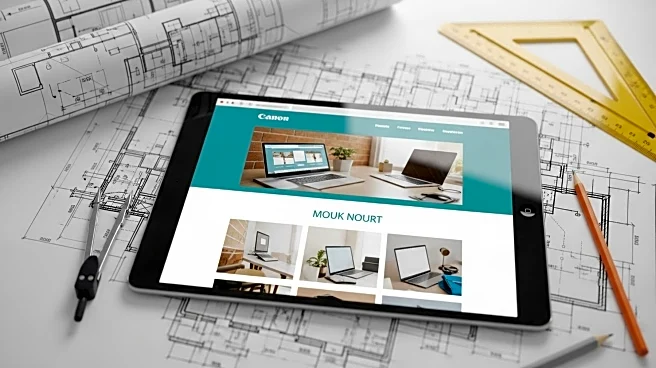What is the story about?
What's Happening?
WordPress, a platform that has dominated the web for nearly two decades, is experiencing a decline in its dominance as a content management system (CMS). Despite still powering over 40% of the web, publishers and creators are increasingly exploring alternative methods to build, scale, and optimize their websites. The shift is driven by the need for more dynamic and experience-driven applications rather than static blogs. Modern web projects are now leveraging headless CMSs, JavaScript frameworks, and no-code tools to create flexible architectures that offer greater control, performance, and adaptability. This evolution reflects a broader trend towards creativity and innovation in web design, as the internet demands more engaging and interactive content.
Why It's Important?
The reconsideration of WordPress as the default CMS choice has significant implications for the digital landscape. As publishers and creators seek more innovative solutions, the demand for flexible and dynamic web architectures is likely to increase. This shift could lead to a rise in the adoption of new technologies and frameworks, potentially impacting the market share of traditional CMS platforms like WordPress. Businesses that adapt to these changes may gain a competitive edge by offering more engaging user experiences. Additionally, the move towards creativity-driven web design could foster greater innovation in digital content creation, influencing how brands and creators interact with their audiences.
What's Next?
As the trend away from WordPress continues, publishers and creators may increasingly invest in alternative technologies to enhance their web presence. This could involve exploring new CMS options, adopting advanced frameworks, and utilizing no-code tools to streamline development processes. The industry may see a surge in demand for professionals skilled in these emerging technologies, potentially reshaping the job market in web development. Furthermore, as businesses prioritize dynamic and interactive content, there may be a shift in marketing strategies to leverage these new capabilities, aiming to capture and retain audience attention more effectively.
Beyond the Headlines
The decline of WordPress as a dominant CMS may also have ethical and cultural implications. As creators seek more control and adaptability, issues related to data privacy and security could become more prominent, especially with the use of headless CMSs and other technologies. Additionally, the move towards experience-driven web design may influence cultural norms around digital interaction, as users become accustomed to more immersive and personalized online experiences. This evolution could challenge traditional notions of content consumption and engagement, prompting discussions on the future of digital media and its role in society.
















